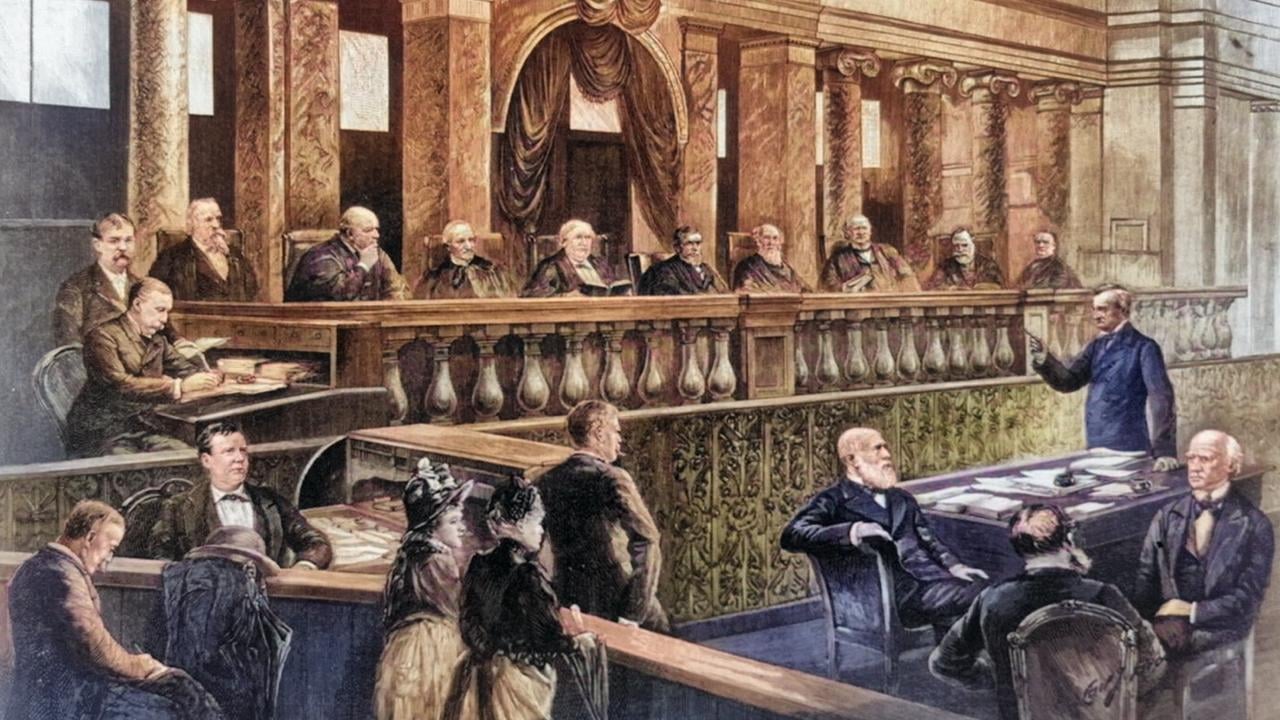
Over the last year, the Supreme Court has delivered several important decisions regarding issues directly affecting our families, communities, and country. These landmark decisions concerned areas of great public interest – abortion, Second Amendment rights, and the federal bureaucracy’s attempts to circumvent congressional authority substituting agency regulations in place of laws passed by the men and women we elect to represent us. The Court’s majority opinions were determined by careful and objective constitutional jurisprudence. And indeed, according to Alexander Hamilton, one of the authors of the Federalist Papers, our Supreme Court is the embodiment of the supreme law of the land.
We, at America’s Future, are grateful readers have responded so positively to our ongoing series on the Federalist Papers. This vital historical collection of essays written by three of our Founding Fathers —James Madison and John Jay along with Hamilton — urging their fellow Americans to ratify the Constitution helps us understand our current situation. The Federalist Papers show us not only how the supreme law of the land came to be but also the ideas and concerns that shaped the thinking of the visionaries who wrote it. This week we turn to Federalist No. 78, in which Hamilton discussed his ideas about the judicial branch.
Hamilton believed that the judicial branch was the weakest of the three branches — the executive branch controls the military and congress – the legislative branch – controls the money but the judiciary, he wrote, “may truly be said to have neither FORCE nor WILL, but merely judgment.” Because of the court’s weakness, the concern was that the judiciary might be vulnerable to corruption. The way to shield federal judges from politics, Hamilton answered, was to give them lifetime appointments.
And it is here where the anti-Federalists, who opposed a stronger federal government, made an important point against Hamilton and the Framers of the Constitution. They noted that the judges appointed for life would then be “independent of the people, of the legislature, and of every power under heaven. Men placed in this situation will generally soon feel independent of heaven itself.”
It is true that we’ve seen activist judges using their position to advance their chosen causes, regardless of the Constitution. Indeed, this is what the legal debate, as opposed to the moral argument, over abortion came down to — Roe v Wade (1973) was bad law shaped by the political winds of the moment. The Supreme Court’s decision to overturn it last year rightly returned the power to regulate abortion back to America’s electorate and their representatives, as stipulated in the Constitution.
Hamilton would have surely cheered the Court’s ruling in the Dobbs (2022) case. For him, judicial review —that is, determining whether statutes, and their application in real world settings, are consistent with the supreme law of the land — was the judiciary’s highest purpose, insofar as it protected the liberties and freedoms guaranteed by the Constitution. Judges, he wrote, “ought to regulate their decisions by the fundamental laws, rather than by those which are not fundamental … [W]henever a particular statute contravenes the Constitution, it will be the duty of the judicial tribunals to adhere to the latter and disregard the former.”
The ongoing fight to preserve our liberties is taking place across America, from federal courtrooms to public schoolrooms. We at America’s Future join hands with all who stand to meet the enemies, foreign and domestic, of our Constitutional Republic, all who are engaged in this generational battle for the future of our great country. Spread the word, let family, friends, and neighbors know — without fear, Americans stand and fight!






